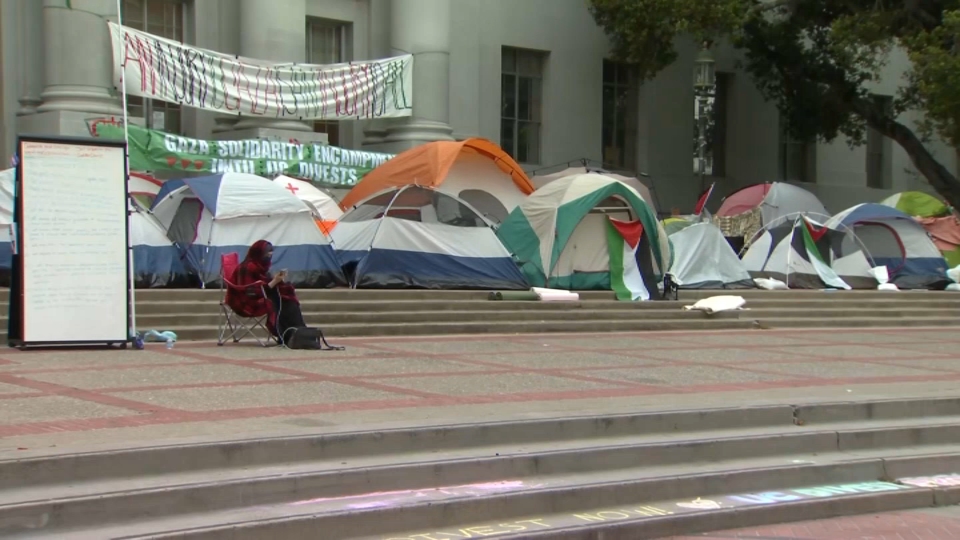Lilia Avila has lived for a decade in the Garcia Mobile Home Park in the Eastern Coachella Valley with her husband and three children. Ask her to describe the park, surrounded by farmland and empty lots in the unincorporated town of Thermal, and she doesn’t mince words: “It’s a pigsty,” she said.
As California Watch has previously reported, the park – which residents call Rancho Garcia – has an antiquated wastewater system. Avila and her neighbors flush their sewage into overloaded septic tanks and cesspools. Raw sewage has regularly backed up into her shower drain, and effluent puddles on the park grounds.
Avila said faulty electricity causes blackouts, leaving residents sweltering in triple-digit summertime heat and food spoiling in refrigerators. There are no sidewalks or storm drains. And without streetlights, the park is pitch-black at night.
For the park's residents – who are all low-income and work on farms, in construction or at date orchards in the area – moving isn’t an option. So now, the residents are fighting to keep the park open after the owners gave notice that they may close it.
Avila and her husband work in the fields, and with the end of the grape harvest, they are currently unemployed. “We are here not because we want to be here, but out of necessity,” she said in Spanish through an interpreter.
The residents say they pay $275 to $395 per month for their space and an additional $20 per month for trash, electricity and water services.
Although they would like to see improvements to the park, Avila and the 45 families living in the Garcia Mobile Home Park say they fear that they could be forced to move because its owners issued a one-year notice of park closure last fall. In an accompanying letter issued by members of the Garcia family – which includes the five adult children of the original park owners who had lived at the park as children – said they can’t afford to make the infrastructure upgrades that would bring it up to current health and safety codes and allow them to register the park with the county.
Local
According to George W. Williams, an attorney who handled the notice of termination for the park, the Garcias don't haveimmediate plans to close the park, but they also don't have the more than $2.75 million it would take to connect the park to city sewage and water lines and to improve the electrical system.
“The Garcia family members are responsible owners,” Williams said in a 2011 letter he sent to local government officials that discusses the shuttering of the park. “They did not wish to close the park which was their childhood home. They were forced to do so because the expense of meeting the county’s requirements to register the park exceeded $2.75M (million), which is many times over the fair market value of the park.”
There is a dearth of affordable housing in the Eastern Coachella Valley – a majority of the low-income housing stock is mobile homes, which can be costly to move. In some cases, older trailers might not survive a move.
Avila’s husband and 29 other residents filed a lawsuit last month against the Garcias to prevent the park from going out of business. The suit asks the state to assign a receiver who would manage the park’s finances and oversee infrastructure upgrades.
There are at least two other mobile home parks under receivership in the Eastern Coachella Valley. Attorneys for California Rural Legal Assistance represented residents in both cases.
The lawsuit against the Garcia Mobile Home Park claims that residents’ health and safety are at “immediate risk” because of the substandard electrical system and the “woefully inadequate” wastewater lines that drain “untreated sewage into pits and ditches" a few feet from residents' homes.
There are “laws on the books that protect the rights of tenants of mobile home parks who are renting space to live in decent, safe living conditions,” said Laura Massie, an attorney with California Rural Legal Assistance, who is representing the residents along with a UC Irvine law school clinic. “The problem is that the laws have been flouted by the park owners for a long time.”
The trustees of the park declined to comment through attorney Williams.
But in a letter Williams sent to California Rural Legal Assistance in response to the lawsuit, the lawyer states that the county has refused to issue permits for phased repairs, making it difficult for owners to bring their parks up to current codes.
Additionally, Williams wrote, he and a former California Rural Legal Assistance attorney, Arturo Rodriguez, had "reached an agreement for the benefit of both the owner and the tenants" in which the residents would form a nonprofit and buy the park from the Garcias. In turn, the Garcias would not close the park and the tenants would not file a lawsuit.
"By filing this lawsuit you have, in bad faith, repudiated that agreement," the letter says.
Rodriguez told California Watch that such conversations had taken place, but Massie of California Rural Legal Assistance said that although the idea had been discussed in a preliminary fashion, she was "not aware of any such agreement."
Williams also thinks that with its focus on mobile home parks, the county is focusing on the wrong health and safety problem.
“Another reality in the East valley is that more people live in mobile homes that are dangerous, un-insulated, firetraps than live in unhealthy mobile home parks,” he wrote in an email. “My view is that money spent on removing and replacing these derelict mobile homes in place is a far louder bang for the buck than the current ‘litigate against small landlords’ mode employed by CRLA (California Rural Legal Assistance).”
Riverside County Supervisor John Benoit, who represents the Eastern Coachella Valley, said he thinks there are “major shortcomings” with the management of the Garcia Mobile Home Park and “to say it’s the county’s fault after years of that is not an accurate statement.”
He added that the county government necessarily has a limited role to play in what is a “private property dispute between a landowner and tenants.”
For residents living in substandard mobile home parks, the county can provide alternative housing, Benoit said, and it can step in to correct health and safety concerns related to things like wastewater treatment and electricity.
“It’s a situation we didn’t create, and we are not in a situation where we can wave a magic wand and fix it,” he said.
There are more than 400 unregistered mobile home parks in the Eastern Coachella Valley.
Assemblyman V. Manuel Pérez, D-Indio, who represents the region, said: "Low-income residents who live in this valley’s mobile home parks are primarily farm workers, whose incomes fluctuate depending on the season. … In essence, these mobile home parks fill a particular niche that meets the circumstances of our lowest-income workers.”
Pérez noted that while mobile home park owners face challenges in maintaining and upgrading the grounds and infrastructure, the “conditions at Rancho Garcia pose a public health threat to its residents, farm workers and children.”
Avila, for one, said these conditions have affected her children’s health. Her eldest son, who is 10, has suffered from chronic and mysterious rashes on his face and legs. A pediatrician suspected the boy was exposed to a bacteria at the mobile home park. At one point, a social worker urged Avila to move.
If she and her husband had more money, they’d relocate, Avila said. In the meantime, she hopes improvements will be made at the park, especially to the wastewater system.
“More than anything is that it gets fixed for the children,” she said of the raw sewage problems. “If they would try to fix it, then we could live with pride.”
California Lost is an occasional series examining challenges facing neglected communities around the state.
View this story on California Watch
This story was produced by California Watch, a part of the nonprofit Center for Investigative Reporting. Learn more at www.californiawatch.org.



